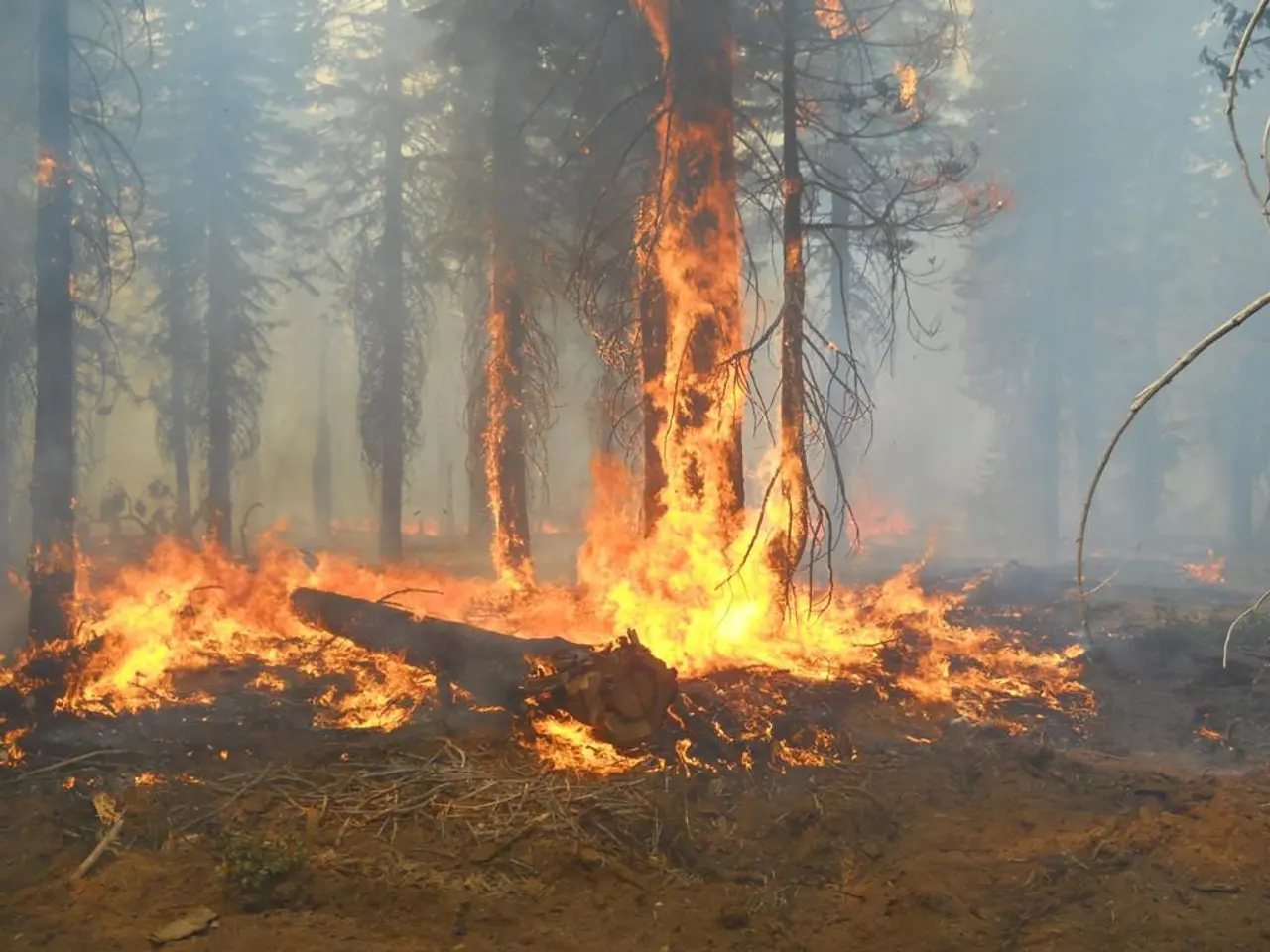Southern Europe and Turkey experience a decrease in fires, yet the temperatures soar.
The danger of forest fires remains extremely high in several regions of Southern Europe and Turkey, as temperatures soar and vegetation dries out.
In Greece, the forest fire danger remains high in the south of the island of Euboea, in the east of Crete, and in the region around Athens. The Greek fire service remains on high alert due to expected windy conditions in some areas. Despite recent rainfall, the threat of wildfires persists.
In Italy, more than 3,700 fires were registered in Sicily between May and the end of July alone. Several fires were also extinguished on Sardinia this week, but the situation remains tense, particularly in the south of the country. The heatwave is also expected to affect neighboring Spain.
Turkey has been hit hard by forest fires this year, with more than 2,000 fires breaking out so far. At least 14 people, including firefighters, have died in forest fires in recent weeks. Firefighters have largely controlled the forest fires, but the danger remains.
Portugal has also been affected by forest fires, with a fire near the small town of Ponte da Barca still raging. A second large fire in the Portuguese small town of Arouca has been brought under control.
Firefighters in Spain received unexpected help from rain, which almost completely extinguished the flames in the Cuevas del Valle south of Ávila. However, the environmental department of the regional government of Castile and León described the rainfall as "manna from heaven" and urged caution, as the danger of wildfires remains high.
Current strategies for managing and preventing forest fires focus on a combination of nature-based forest management, ecosystem restoration, controlled burns, firebreaks, improved early warning systems, community involvement, and regional cooperation. These approaches address root causes such as flammable vegetation and ecosystem degradation worsened by recent heatwaves and high temperatures.
Experts stress the need for shifting public funding away from emergency firefighting towards long-term, science-based prevention strategies that enhance ecosystem resilience and rural livelihoods. Regional cooperation, as seen with Turkey, Syria, Lebanon, and neighboring countries sharing assistance during wildfires, is an important component to containment and preparedness in the broader Middle Eastern and Mediterranean context.
Despite planned improvements and increased firefighting resources in some areas, concerns remain about the adequacy of current efforts given extreme heat and repeated wildfire events. Public education campaigns to raise climate and fire safety awareness are critical, as vulnerable communities often lack resources for prevention and response.
In summary, the current strategies combine ecological restoration, community engagement, early warning, controlled burns, improved infrastructure, and international cooperation to prevent forest fires and mitigate their impacts under increasingly severe climatic conditions in Southern Europe and Turkey.
- The high risk of forest fires continues in environmental-science fields as Southern Europe and Turkey grapple with soaring temperatures and dry vegetation, also a topic in general-news.
- In the wake of several forest fires, Italy has recorded over 3,700 fires in Sicily alone, showing the severity of climate-change's impact on the region.
- Firefighting resources in Spain have received an unexpected boost from weather-forecasting, with rain almost extinguishing forest fires in Cuevas del Valle.
- Despite recent rains, the threat of wildfires still looms large in Greece, necessitating the continued vigilance of the fire service.
- Noteworthy efforts to curb forest fires involve science-based strategies, including nature-based forest management, controlled burns, and community involvement, all crucial elements in the fight against such incidents.








